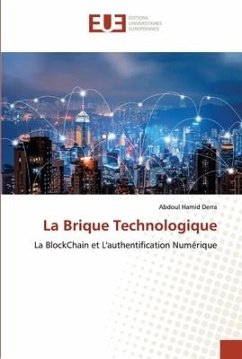
The Quantitative Trader
Quantitative Trading and Crypto Asset Markets
Versandkostenfrei!
Versandfertig in 6-10 Tagen
56,99 €
inkl. MwSt.

PAYBACK Punkte
28 °P sammeln!
Technically, the blockchain revolution is based on the concept of "public verifiability", that is to say: a technical system which allows anyone to autonomously verify the accuracy of the state of the system. In a distributed ledger, any observer can verify that each action modifying the state of the system is valid: conforms toThe set of rules, accepted by all, which govern the system. This verifiability is only possible if the information necessary for validation is available, verifiable within a reasonable time, and the actions performed are observable. The verification process can advantag...
Technically, the blockchain revolution is based on the concept of "public verifiability", that is to say: a technical system which allows anyone to autonomously verify the accuracy of the state of the system. In a distributed ledger, any observer can verify that each action modifying the state of the system is valid: conforms toThe set of rules, accepted by all, which govern the system. This verifiability is only possible if the information necessary for validation is available, verifiable within a reasonable time, and the actions performed are observable. The verification process can advantageously rely on a blockchain, while guaranteeing the user confidentiality and a means of re-appropriating the use of identity attributes or personal data. Blockchain offers a transparent and auditable digital system, which ensures the integrity of documents, deeds or titles, exchanges, as well as the timestamping and scheduling of all transactions concerning them.












